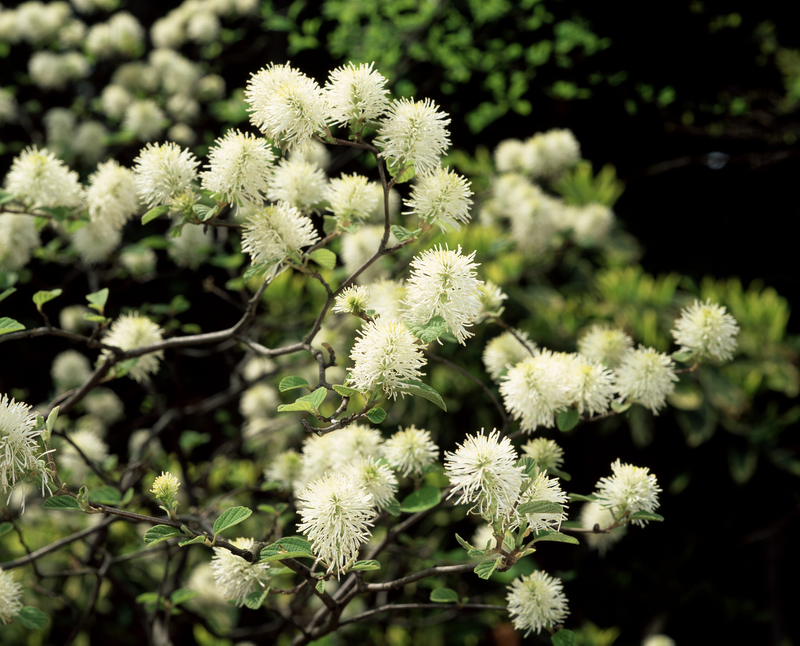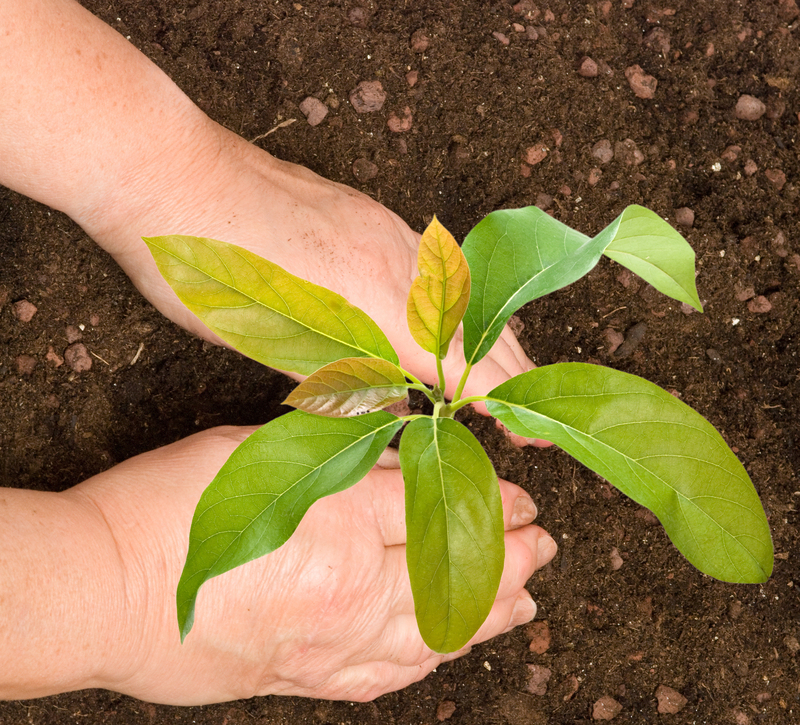From Seed to Sprout: 9 Best Tips for Beginner Gardeners
Posted on 02/10/2025
From Seed to Sprout: 9 Best Tips for Beginner Gardeners
Have you ever dreamed of growing vibrant gardens from scratch, but felt overwhelmed by the process? Embarking on your gardening journey can be both exciting and a little intimidating. Whether you have a spacious backyard or a small balcony, beginner gardeners have more resources and knowledge at their fingertips than ever before.
This comprehensive guide will walk you through the best gardening tips--from choosing seeds to caring for your first sprouts--making your entry into the wonderful world of home gardening both successful and rewarding. Dive into these nine essential seed-to-sprout tips and watch your garden thrive!
Contents
- 1. Start with Easy-to-Grow Seeds
- 2. Choose the Perfect Location
- 3. Invest in Quality Soil and Amendments
- 4. Understand the Importance of Watering
- 5. Pay Attention to Sunlight Needs
- 6. Learn the Basics of Seed Planting Depth
- 7. Practice Consistent Garden Maintenance
- 8. Protect Your Seedlings from Pests
- 9. Track Progress and Celebrate Success
1. Start with Easy-to-Grow Seeds
One of the most important tips for beginner gardeners is to choose seeds that are forgiving and thrive in various conditions. By picking varieties known for their easy germination and resilience, you increase your chances of early success and enjoyment.
Top Seed Choices for New Gardeners
- Radishes: Fast-growing and perfect for early gratification.
- Lettuce: Grows quickly and harvests continuously.
- Sunflowers: Hardy and dramatic, great for kids and adults alike.
- Snap peas: Cool-season crop with rapid sprouting.
- Zinnias: Easy-to-grow flowers with bright, colorful blooms.
Starting with easy seeds helps you develop confidence and build essential gardening skills from the very beginning.
2. Choose the Perfect Location
Site selection plays a crucial role in gardening success. Before you plant a single seed, evaluate your available spaces for factors like sunlight, wind protection, and accessibility.
Key Location Considerations
- Sunlight: Most vegetables and flowers require at least 6 hours of direct sunlight daily.
- Drainage: Avoid low spots where water pools after rain.
- Accessibility: Make sure your garden is easy to reach for watering and maintenance.
A well-chosen location provides the foundation every sprout needs to flourish.
3. Invest in Quality Soil and Amendments
Soil is truly the heart of your garden. Healthy, well-amended soil encourages vigorous root growth and successful seed sprouting. Start with a basic soil test to understand the nutrient profile of your garden bed or containers.
Essential Soil Tips for Beginners
- Add Compost: Incorporate organic matter to enhance soil fertility and texture.
- Check pH Levels: Most plants prefer a neutral to slightly acidic pH (around 6.0-7.0).
- Use Mulch: Helps regulate soil temperature and keeps moisture levels steady.
Enriching your soil ensures stronger, healthier plants from seed to sprout.
4. Understand the Importance of Watering
Proper watering techniques set beginners apart from struggling gardeners. Seeds and young plants are especially sensitive to moisture fluctuations. Overwatering can cause root rot, while underwatering can halt germination altogether.
Top Watering Tips for Beginner Gardeners
- Keep Soil Moist, Not Soaked: Aim for a consistent dampness that feels like a wrung-out sponge.
- Water Early in the Day: Reduces disease risk and minimizes evaporation loss.
- Observe Your Plants: Watch for signs of drooping or dried leaves as indicators for extra attention.
Remember, stable moisture levels during the sprouting stage are crucial for strong, healthy seedlings.
5. Pay Attention to Sunlight Needs
Understanding how much light your garden area receives is vital for every beginning gardener. Some seeds and plants thrive in full sun, while others prefer partial shade.
Sunlight Tips to Maximize Growth
- Track the Sun: Spend a day noting sun exposure across your chosen site.
- Adjust Garden Layout: Place sun-loving plants in open spots, and shade-tolerant varieties where direct rays are limited.
- Rotate Your Crops: Changing locations each year helps prevent soil depletion and pest issues.
Matching your seeds to the right sunlight conditions can make the difference between a lackluster and a lush beginner garden.
6. Learn the Basics of Seed Planting Depth
How deep should you plant your seeds? Each seed variety has its own ideal depth, which impacts emergence and growth. Plants like carrots and lettuce require only a light covering, while beans and sunflowers can handle deeper planting.
Seed Depth Guidelines
- Consult Seed Packets: Always refer to the instructions on your seed packets for best results.
- General Rule: Plant seeds at a depth of 2-3 times their diameter.
- Gently Press Soil: After sowing, press lightly to ensure good soil-to-seed contact without compacting the earth.
Proper planting depth improves germination rates and helps your garden grow strong from the start.
7. Practice Consistent Garden Maintenance
Ongoing care is key to transforming seeds into flourishing sprouts and mature plants. Beginner gardeners should get into the habit of regular garden check-ups to spot issues early and keep everything growing smoothly.
Essential Maintenance Tasks
- Weeding: Remove invasive plants frequently to give seedlings space and resources.
- Thinning: Thin crowded seedlings to promote air circulation and prevent disease.
- Pruning: Trim any dead or damaged leaves for a tidy, healthy appearance.
- Feeding: Use a balanced fertilizer once seedlings develop true leaves.
An attentive gardener is rewarded with a thriving, productive garden season after season.
8. Protect Your Seedlings from Pests
Pests can quickly damage or destroy young plants, particularly in the early stages. Being proactive about plant protection is an essential tip for new gardeners.
Easy Ways to Guard Against Pests
- Use Row Covers: Lightweight fabric protects tender sprouts from insects and birds.
- Encourage Natural Predators: Attract ladybugs and birds to your garden for natural pest control.
- Inspect Regularly: Check leaves for signs of damage and act quickly if pests appear.
- Avoid Chemical Overuse: Rely on organic solutions where possible to keep your garden safe and sustainable.
With vigilance, you can protect your garden from common threats and enjoy a robust harvest.
9. Track Progress and Celebrate Success
One of the most powerful gardening tips for beginners is simply to enjoy the process! Keep a gardening journal--record your seed choices, planting dates, weather, and observations.
Why Tracking Matters
- Spot Trends: Identify what works and what needs adjustment.
- Learn from Experience: Build your gardening knowledge year after year.
- Celebrate Milestones: Photographs and notes help you relish small victories and tackle challenges with confidence.
Remember, every sprout and bloom is a triumph! Sharing your progress with fellow beginner gardeners, on social networks or in person, can also provide motivation and valuable advice.


Bonus: Seasonal Tips for Seed and Sprout Success
Spring
- Start with cool-season crops like peas, lettuce, and radishes.
- Prepare soil as soon as it's workable and free of frost.
Summer
- Transition to heat-loving varieties--tomatoes, beans, and sunflowers.
- Mulch well to retain moisture during hot spells.
Autumn
- Sow a last round of quick-growers (spinach, turnips).
- Clean up spent plants and add organic matter for next year.
Winter
- Plan your next garden, browse seed catalogs, and prepare containers indoors for an early start.
Conclusion
Gardening is a remarkable blend of science, art, and personal enjoyment. With these 9 best tips for beginner gardeners--from choosing the right seeds to celebrating your first sprout--you'll lay a solid foundation for ongoing success.
Remember to start small, stay curious, and keep learning. With patience and care, your journey "from seed to sprout" will soon become a rewarding, lifelong passion.
Ready to Start Your Garden?
Plant your first seeds, nurture your sprouts, and take pride in every step of your gardener's journey. Your future garden is just a seed away!

